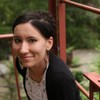Like many molecular biologists—and, for that matter, plenty of condensed matter physicists and materials engineers—Dr. Maryam Zaringhalam is not one for crowds.
"Shout-out to all the introverts that are here screaming their lungs out!" the petite 28-year-old PhD shouted into a microphone, straining to be heard over the hundreds of researchers, academics, tech workers, and rationalist allies in Boston's Copley Square on Sunday, during the brief and deeply nerdy Rally to Stand Up for Science.
"Shout-out to all the introverts that are here screaming their lungs out!" the petite 28-year-old PhD shouted into a microphone, straining to be heard over the hundreds of researchers, academics, tech workers, and rationalist allies in Boston's Copley Square on Sunday, during the brief and deeply nerdy Rally to Stand Up for Science.
Advertisement
For most of the researchers who flanked Zaringhalam on the stage, the rally was a brief but urgent diversion from the American Association for the Advancement of Science's (AAAS) annual meeting just down the block, where the country's Scientific Establishment converged for the weekend. But underneath their white coats, these once reserved investigators shared something far more striking in common: Though men still dominate science in America, the new scientific resistance to President Trump is being led by women, many of whom insist there's no such thing as science without politics."We didn't start it with the goal of leading a resistance or building a movement, but that's kind of what happened," explained Dr. Jane Zelikova, a AAAS fellow with the Department of Energy and one of the co-founders of 500 Women Scientists, a neophyte scientific-political network formed in the wake of the election. When the administration began its assault on agencies from the National Parks Service to NASA, erasing peer-reviewed science from government sites and silencing dissent, "women sort of got it right away," the climate scientist told me. "I think on our male colleagues' side, there was more hesitation."In fact, when a trio of researchers first floated the idea of a March for Science—now scheduled for April—the response from many in the community was swift and damning. "A march by scientists, while well intentioned, will serve only to trivialize and politicize the science we care so much about," geologist Robert S. Young wrote in a widely circulated op-ed in the New York Times.
Advertisement
Others, like Dr. Mike Brown—the Caltech astronomer who famously killed Pluto—wonder about the effectiveness of public demonstrations."Everyone's concerned and wants to do something: The questions are how best to do things, not whether to do things," he told me of the March for Science and its allied actions. "I am not convinced it's going to do much, but maybe I'm wrong—and that would be great."So far, the debate has been a contentious one."There is a huge battle right now in the scientific community to figure out what is the politics of science," said Dr. Lucky Tran, a science communicator at Columbia University who sits on the steering committee of the March for Science and counts himself as a male ally of 500 women. "Most scientists are resistant to collective action, and they're resistant to getting involved in politics."
Environmental Scientists Jessica Leonard and Lana Bluege hold up signs made by the Natural History Museum for the Rally to Stand Up for Science in Boston's Copley Square on Sunday, Feb. 19, 2017.
That seems to be changing. Many prominent scientific organizations have since come out in support of the march, which now has Earth Day actions planned in 150 cities. (The letter that launched 500 women scientists has garnered more than 16,000 signatures.) The AAAS itself also condemned Trump's since-blocked travel ban, with president (and former congressman) Rush Holt calling fellow researchers reluctance to do the same "excuses for inaction."*"If you look at who are arguing on the side that, 'Of course science is political, you fools,' they're largely women, people of color, immigrants who have known forever that science is political and has always been political because our access has been restricted," explained Zaringhalam, the molecular biologist, who has since become a New York City organizer for the group. "You see that, and you see that this is exactly a microcosm of America. It feels pretty political when you see on one side mostly white people and on the other side mostly marginalized people."
Advertisement
Unlike Zelikova, a protest-averse Soviet Jewish emigre, Zaringhalam has more practice with politics. Her Instagram is scattered with DC grip and grins and BLM marches. She's even applied for an AAAS fellowship to work in scientific diplomacy—but she said the current administration's hostility to Tehran makes her chances remote at best."When you're engaging in scientific collaboration with another country and you come up with something like a cure or a new technology, it goes a long way to creating diplomatic capital," she said. "It's hard to think now about what could have been."With her dream deferred, she now spends her time away from the lab organizing other scientists, debating policy platforms, and posting protest outfits to Instagram. Unlike most other groups that have formed since the election, the coalition of female researchers is working both to defend science from outside attack and reform it from within."They really want to focus on science in policy. We really want to work on addressing these entrenched biases against women and minorities," Zelikova, the climate scientist, explained. "We're not reinventing the wheel, but we're giving a different voice and a more activist one to the issues."STEM fields are notoriously male, and while women now outnumber men in some disciplines, few have traditionally reached the top of their department or laboratory. It's a phenomenon known as the "leaky pipeline": While more women than ever are studying science, relatively few end up with advanced degrees and scientific careers, and only a fraction of those who do endure claw their way to leadership roles. While one study last year suggested the leak has largely been plugged since the 1970s, for minority scientists, it still feels like a gush.
Advertisement
"In science, it's not just a gender imbalance, but that the gender imbalance comes with a power differential," said astrophysicist Dr. Rukmani Vijayaraghavan, an organizer for 500 women. "When people try to say we must have more women in science, what ends up happening if we have more white women in science, and they consider the problem solved."This is particularly true of climate science, which holds the odd dual distinction of being both the most embattled scientific discipline in America and one of the whitest fields in STEM. "If you go to the annual meeting, it's overwhelmingly white," Zelikova said of her own field.Inside the Dark Matter Lab Buried Over a Mile Underground In an echo of the intersectional debates that raged around the Women's March in January, some science activists say they hesitate to stand up for the institutions of science while those same institutions still oppress them."I can't go out and rally for climate change and still have all of this—racism, gender discrimination, sexual harassment, and assault—to deal with," Vijayaraghavan said. "I can't separate the two. It's not different aspects of my life."Brown, the Caltech astronomer, frets that mixing the scientific community's internal politics with polarizing external debates may be counterproductive. But he's cautiously optimistic."I'm an old white dude, so it's not surprising that I don't see it the same way, but I'm not sure I see how those two relate to each other well," he said. "At the same time, the Women's March was God knows how many issues, and it was effective. Maybe this is the same."For her part, Zaringhalam remained hopeful the grassroots networks that have sprung up to defend vaccines, climate science, and the EPA can be leveraged to reform the discipline she loves."A very vocal minority of us are starting to yell, and we're forcing the community to make noise and stand up for us," she said. "On the one hand, it's super scary. On the other, it's very empowering time to be disempowered."Follow Sonja Sharp on Twitter.*Update 2/23/17: This story has been updated to account for the AAAS partnering with the March on Thursday.
In an echo of the intersectional debates that raged around the Women's March in January, some science activists say they hesitate to stand up for the institutions of science while those same institutions still oppress them."I can't go out and rally for climate change and still have all of this—racism, gender discrimination, sexual harassment, and assault—to deal with," Vijayaraghavan said. "I can't separate the two. It's not different aspects of my life."Brown, the Caltech astronomer, frets that mixing the scientific community's internal politics with polarizing external debates may be counterproductive. But he's cautiously optimistic."I'm an old white dude, so it's not surprising that I don't see it the same way, but I'm not sure I see how those two relate to each other well," he said. "At the same time, the Women's March was God knows how many issues, and it was effective. Maybe this is the same."For her part, Zaringhalam remained hopeful the grassroots networks that have sprung up to defend vaccines, climate science, and the EPA can be leveraged to reform the discipline she loves."A very vocal minority of us are starting to yell, and we're forcing the community to make noise and stand up for us," she said. "On the one hand, it's super scary. On the other, it's very empowering time to be disempowered."Follow Sonja Sharp on Twitter.*Update 2/23/17: This story has been updated to account for the AAAS partnering with the March on Thursday.

